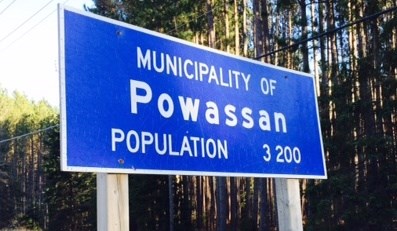Powassan's deficit was by far the dominant issue at a Meet the Candidates event at the Powassan Legion.
Powassan Mayor Peter McIsaac, who is seeking a fourth term as mayor, told voters, news of this development came as a surprise earlier this year.
“At the start of the 2022 budget, we thought we had a $670,00 surplus,” McIsaac said.
“Rather it was a deficit.”
Incumbent councillor Markus Wand said the shortfall resulted from several years of deficits because “of improper budgeting.”
Wand wants a third term as a councillor because he told the crowd “I don't want to shy away from fixing the mess we're in.”
Both Wand and McIsaac said the current council began addressing the problem shortly after the issue was discovered by restructuring staffing levels and keeping service impacts to a minimum.
The mayor added cash flow for the municipality “will be an issue for the next couple of years” and that “the budget structure over the next two years will be one of our challenges.”
Wand said developing the Industrial Park by encouraging the lot owners to build businesses at the site in addition to encouraging sustainable growth in both the urban and rural sections of the municipality would increase tax revenue and “help reduce the tax burden on the municipality.
Deputy Mayor Randy Hall said the biggest challenge the new council will face is “to develop a sustainable operating budget” to cope with the shortfall.
Hall emphasized the “default answer should not be to just raise taxes.”
Rather his solution is to examine what services and facilities Powassan needs and determine what they cost.
Hall added if the municipality still faces a deficit after this process, then council and staff will have to work with the residents on ways to develop funding.
Hall identified recreation as an area where it may be possible to achieve efficiencies but he didn't elaborate.
Councillor candidate Leo Patey said council has already done quite a bit to mitigate the shortfall issue but that it will still take “the council a few years to get back on track.”
Patey said the new council will have to decide whether to pursue new projects or maybe postpone them for a time and furthermore, the new council will have to work with a leaner budget.
Roger Glabb, a former town councillor, said the new council would need to call “an all hands on deck meeting” to learn how the deficit occurred in the first place.
Glabb said the intent was “not to point fingers” but rather to create safety measures so this doesn't happen again.
Glabb believed encouraging economic growth, which included getting the landowners at the Industrial Park to build at the site, was a way to improve the municipality's revenue circumstances.
Aaron Kennedy is a relative newcomer to the region making the move to northern Ontario in 2014.
Kennedy said the newly discovered deficit is the town's “biggest fiscal challenge.”
Up to this point, no one said publicly what the deficit amounted to and no one challenged Kennedy when he said the previous budget produced a shortfall of $950,000.
He said resolving this obstacle would require “thinking outside the box” and going through the budget “one line at a time” so that the municipality “can chip away at it.”
Like several of the candidates, Kennedy also believed pursuing light industrial and residential growth would bring new tax money to the town.
Don Thompson said he's heard all sorts of numbers regarding the size of the shortfall and said “they are all assumptions.”
Thompson is the president of the Trout Creek Agricultural Society and said when he first joined the organization as a board member eight years ago, the society had a $1,800 debt.
Thompson said heading into this year's fall fair the society was $21,000 in the black thanks to the work of him and the other members.
Thompson asked the ratepayers to vote for people who they believe can work together and Thompson added he believed he could be one of those people.
Greg King also addressed the monetary challenge and told the audience an easy way to resolve the issue was to make cuts but added cuts were not the answer and that it was important for the community to keep growing.
King believed arriving at a solution would require everyone working together.
Former Powassan mayor Peter Brushey said he would address the fiscal challenge the municipality faces by going through the information staff provided and then make a decision with the new council on “how to deal with it.”
Incumbent councillor Dave Britton said the municipality had to ensure there was a balance between what it collected in taxes and what it spent.
Britton also raised the issue of climate change saying it affects the local infrastructure and that what the new council would need to do is “develop flood-plain mapping to protect the community now and in the future.”
Britton said he's been talking to the North Bay Mattawa Conservation Authority about developing such a plan.
Candidate Holly Rich said the local arenas were the municipality's biggest fiscal challenge.
She noted not everyone likes hockey yet it's heavily promoted.
Rich said as people face more financial difficulties they may look to cheaper alternatives than being involved in hockey and that means fewer people going to the arenas.
She suggested pursuing other events for the arenas like bringing in live bands and holding private functions which would create more revenue.
Holly also suggested organizing other sports like soccer and baseball.
The audience was told Patrick Byers was ill and could not attend the event and that George Folliot had changed his mind about seeking a council seat but his name still appears on the ballot.
Rocco Frangione is a Local Journalism Initiative reporter who works out of the North Bay Nugget. The Local Journalism Initiative is funded by the Government of Canada.



